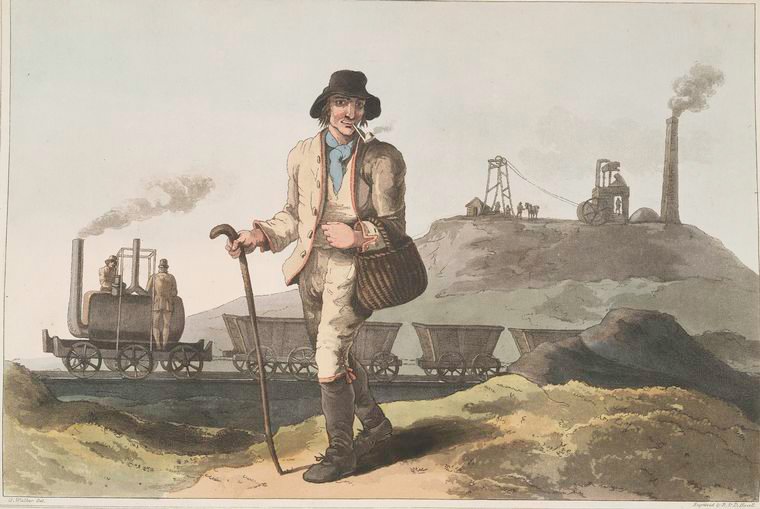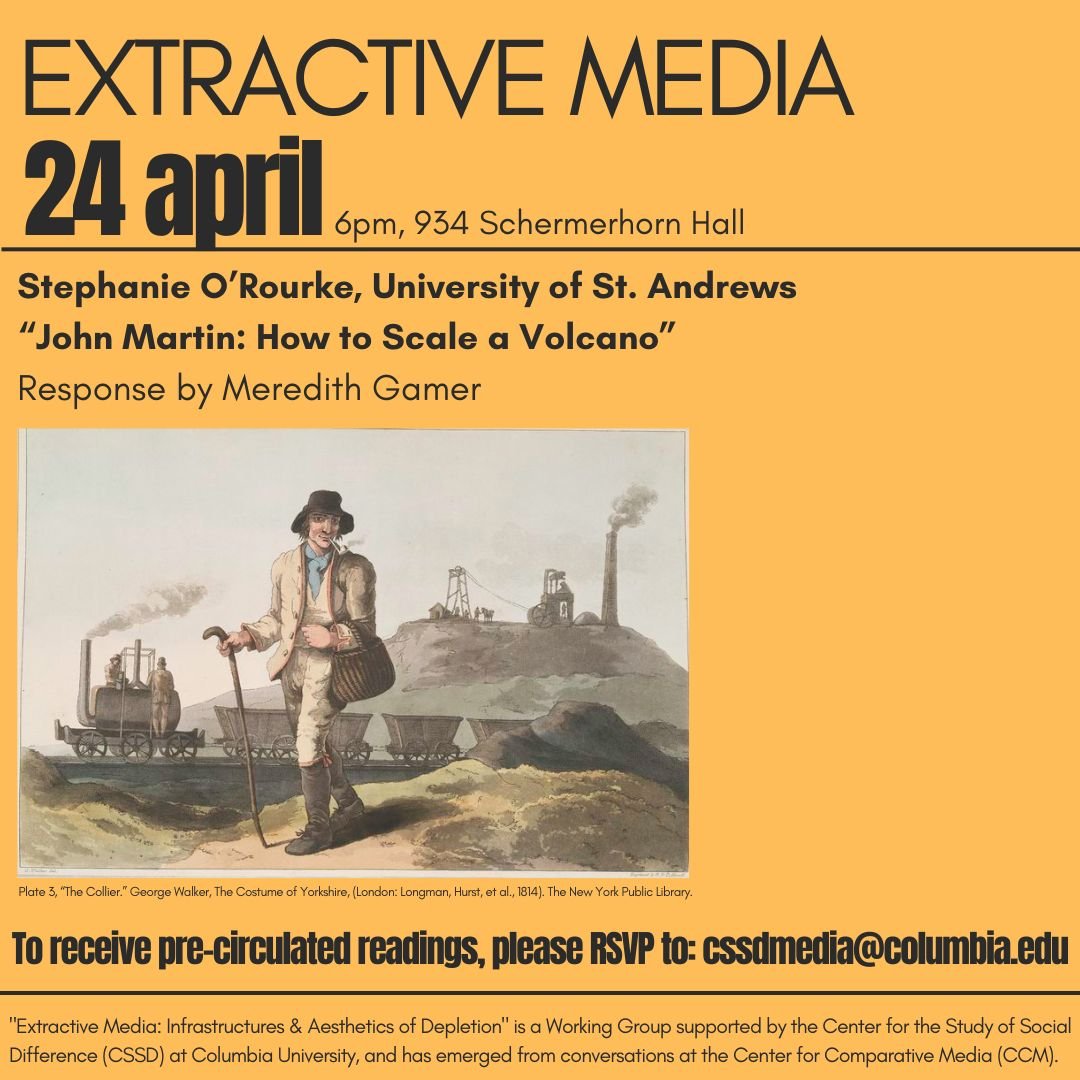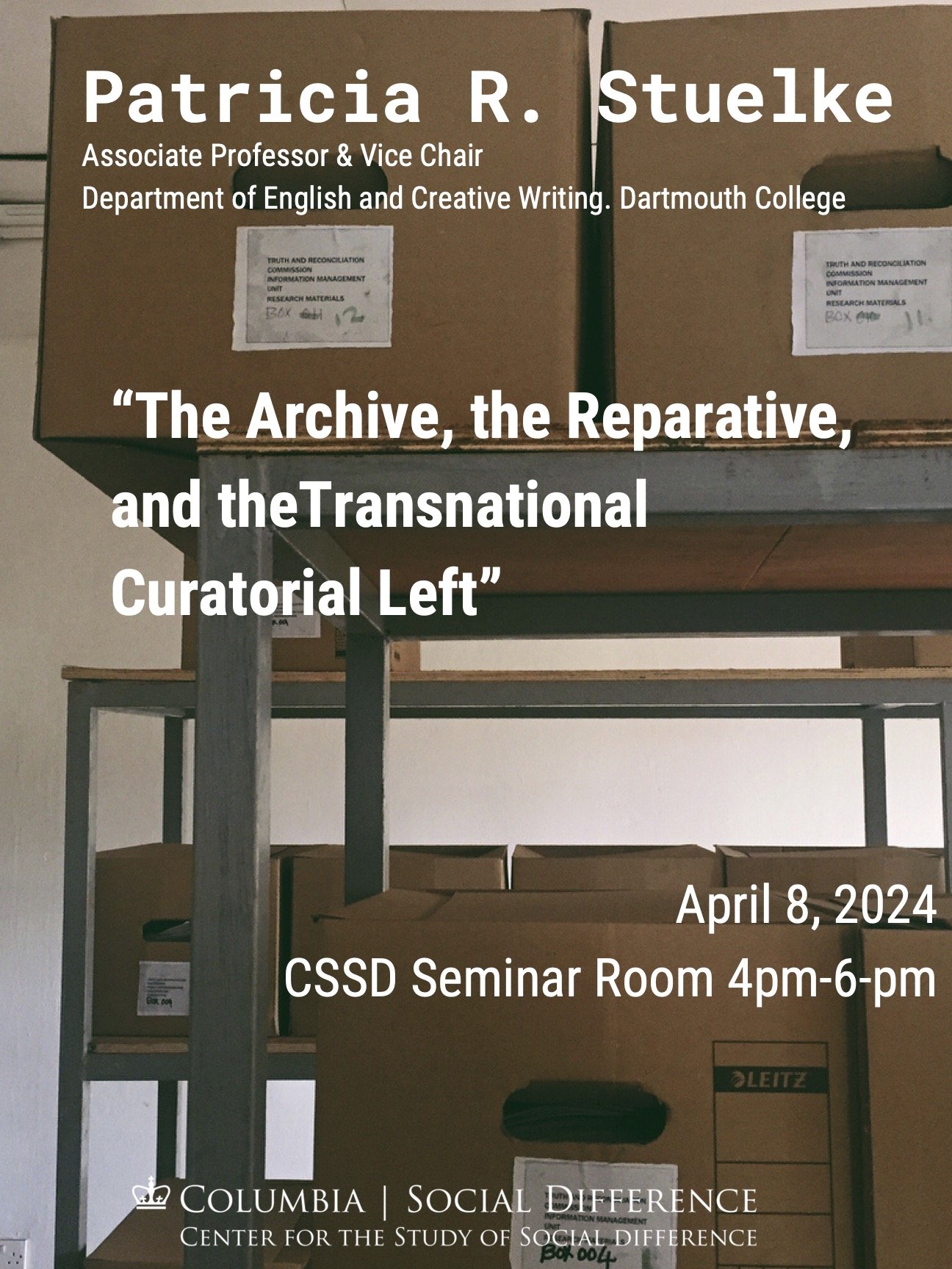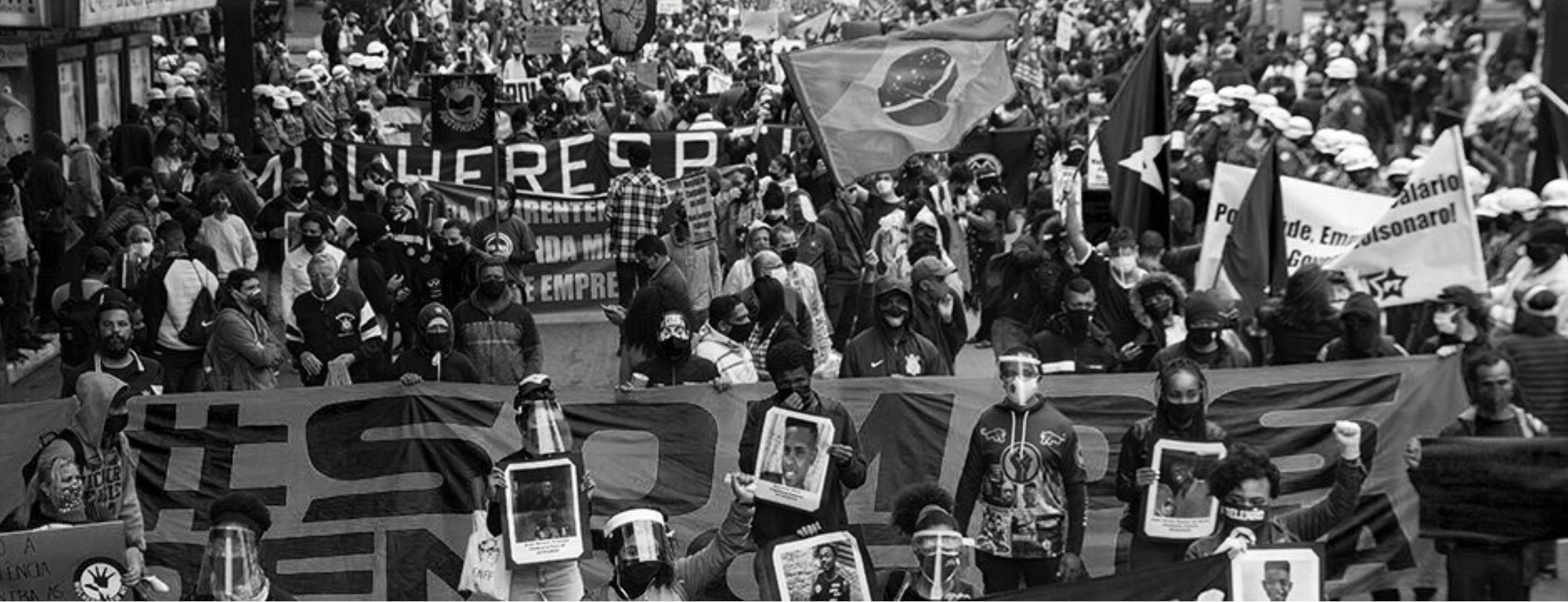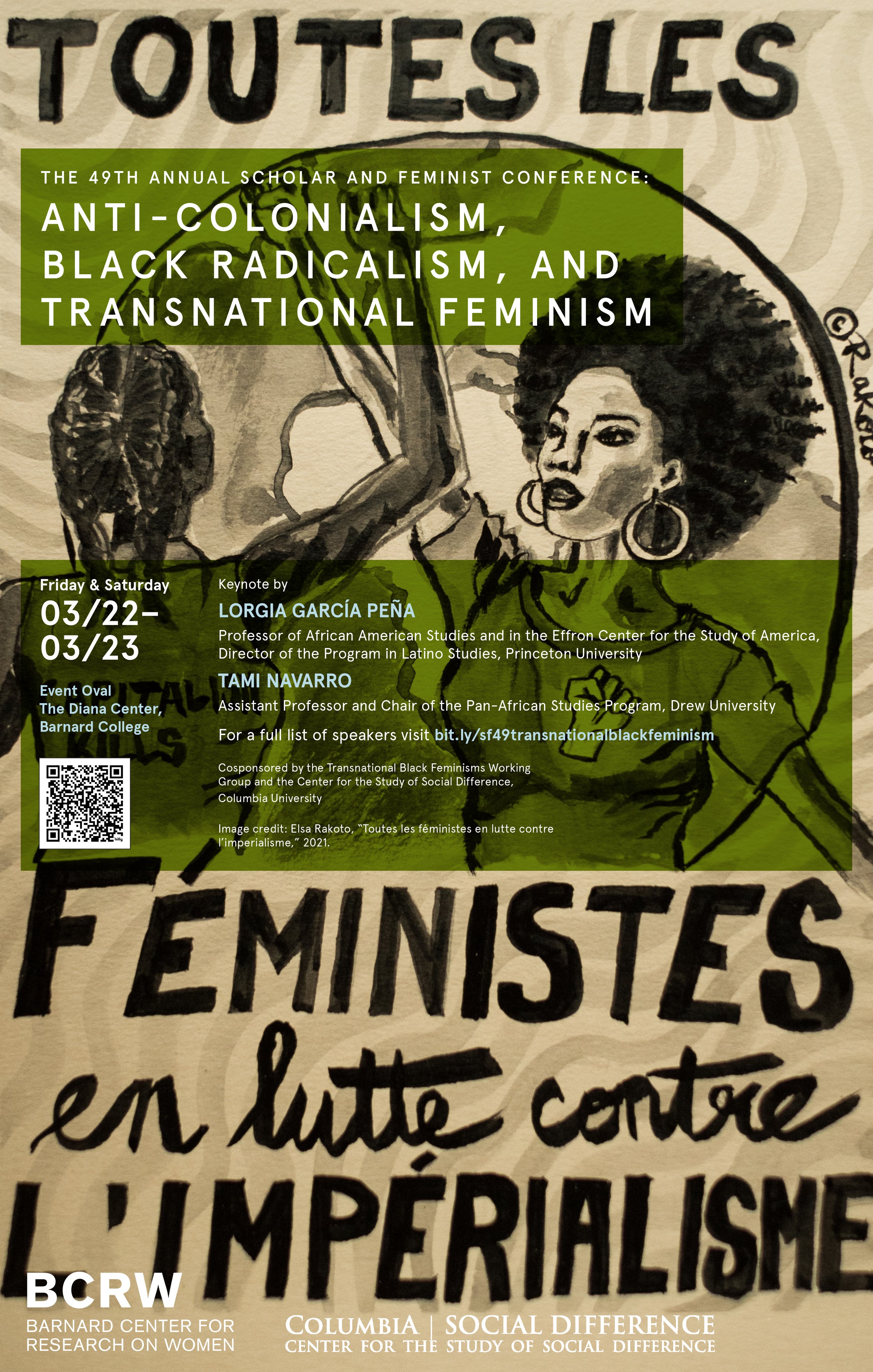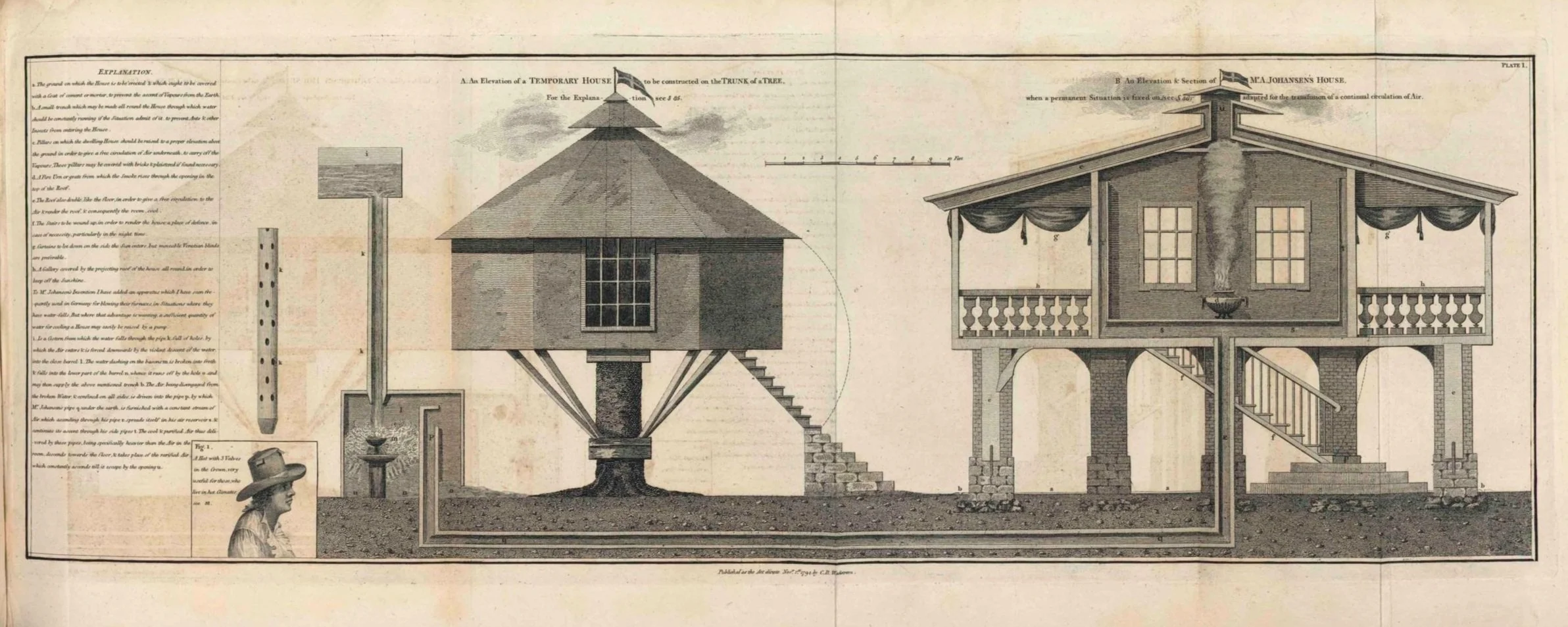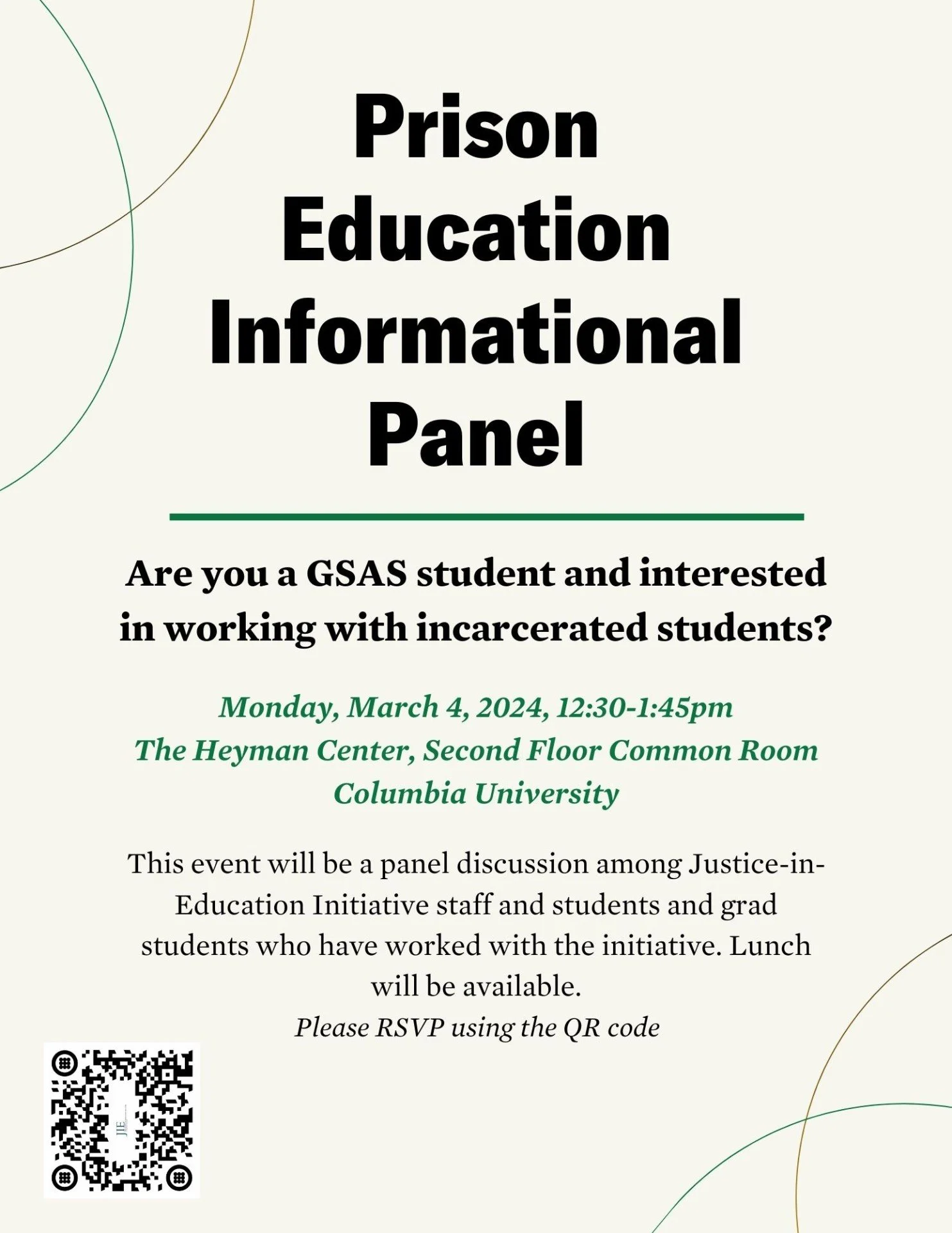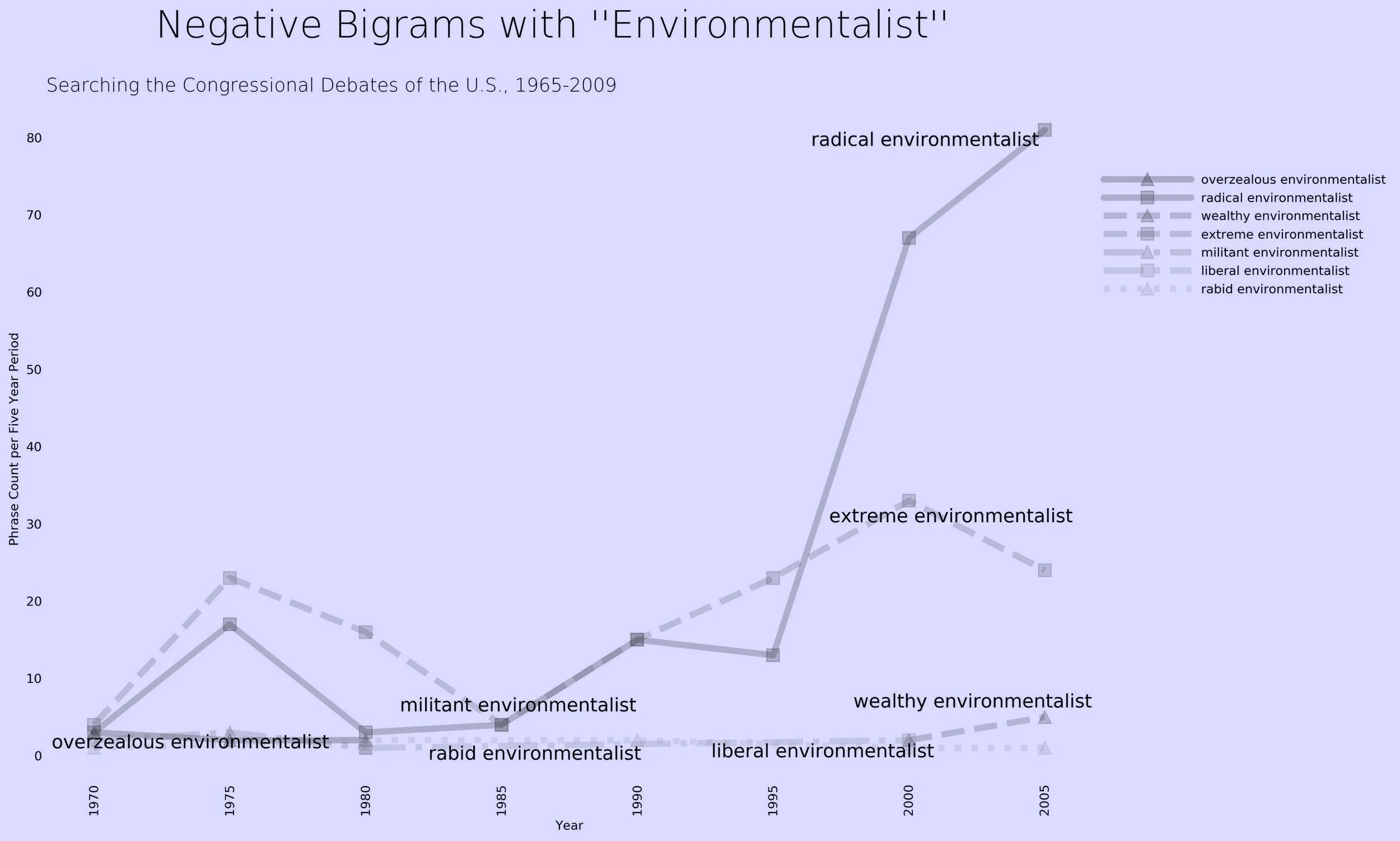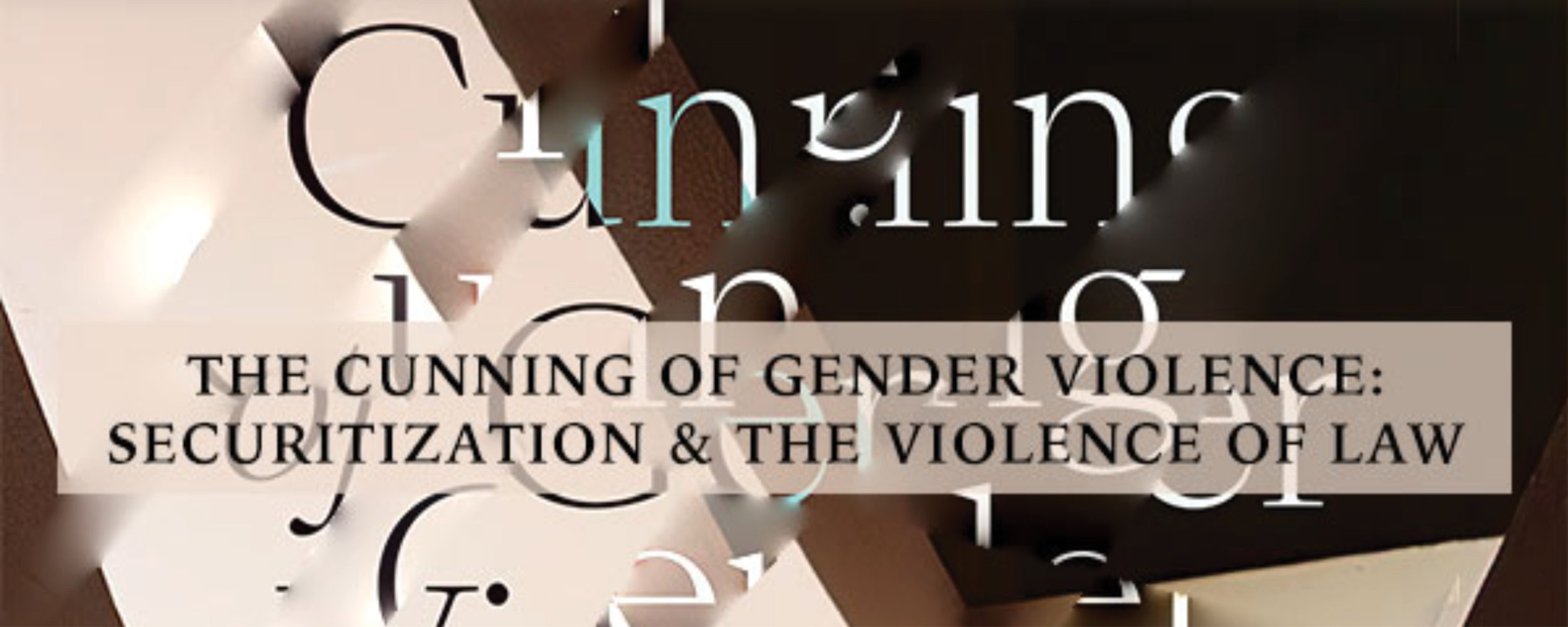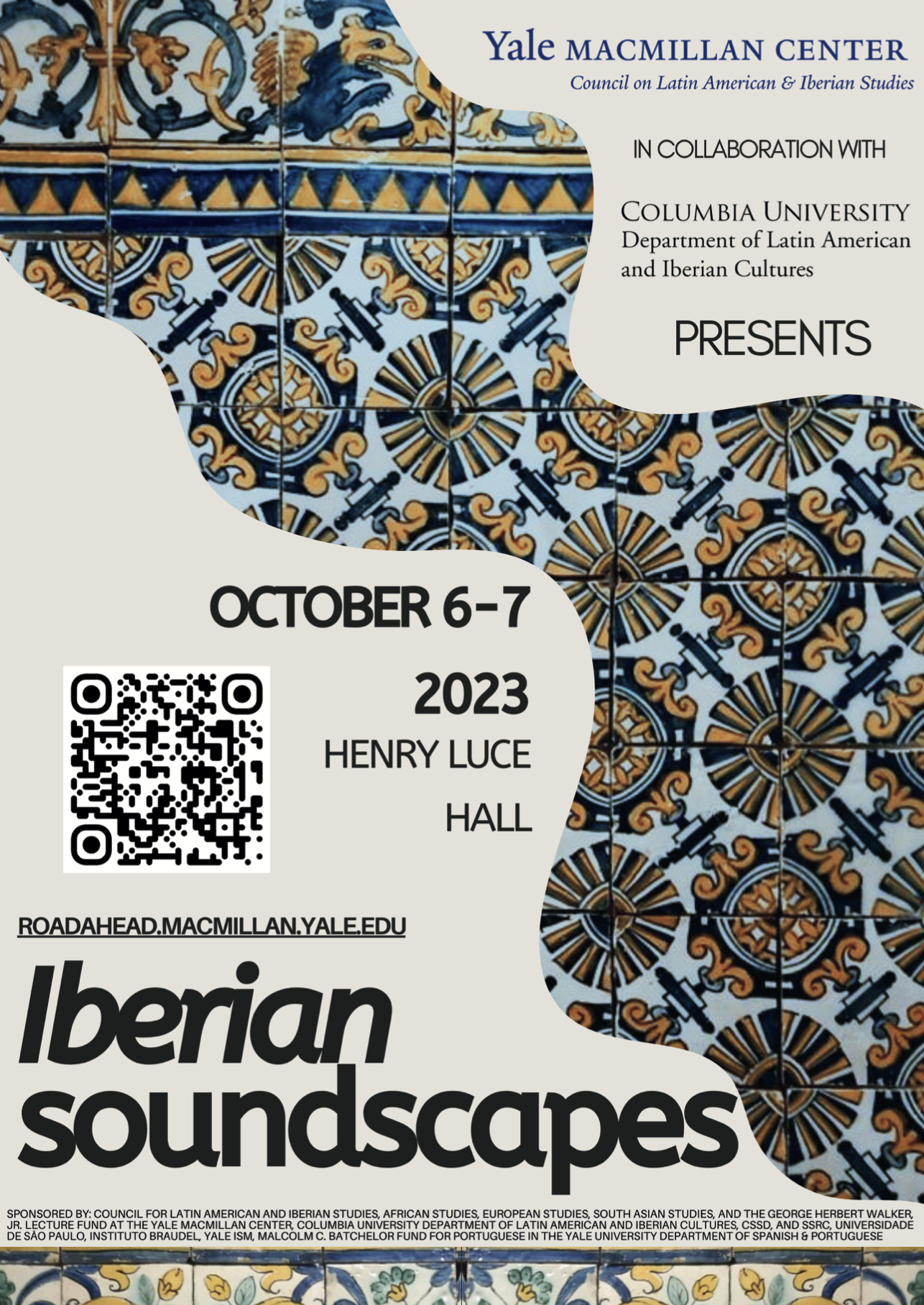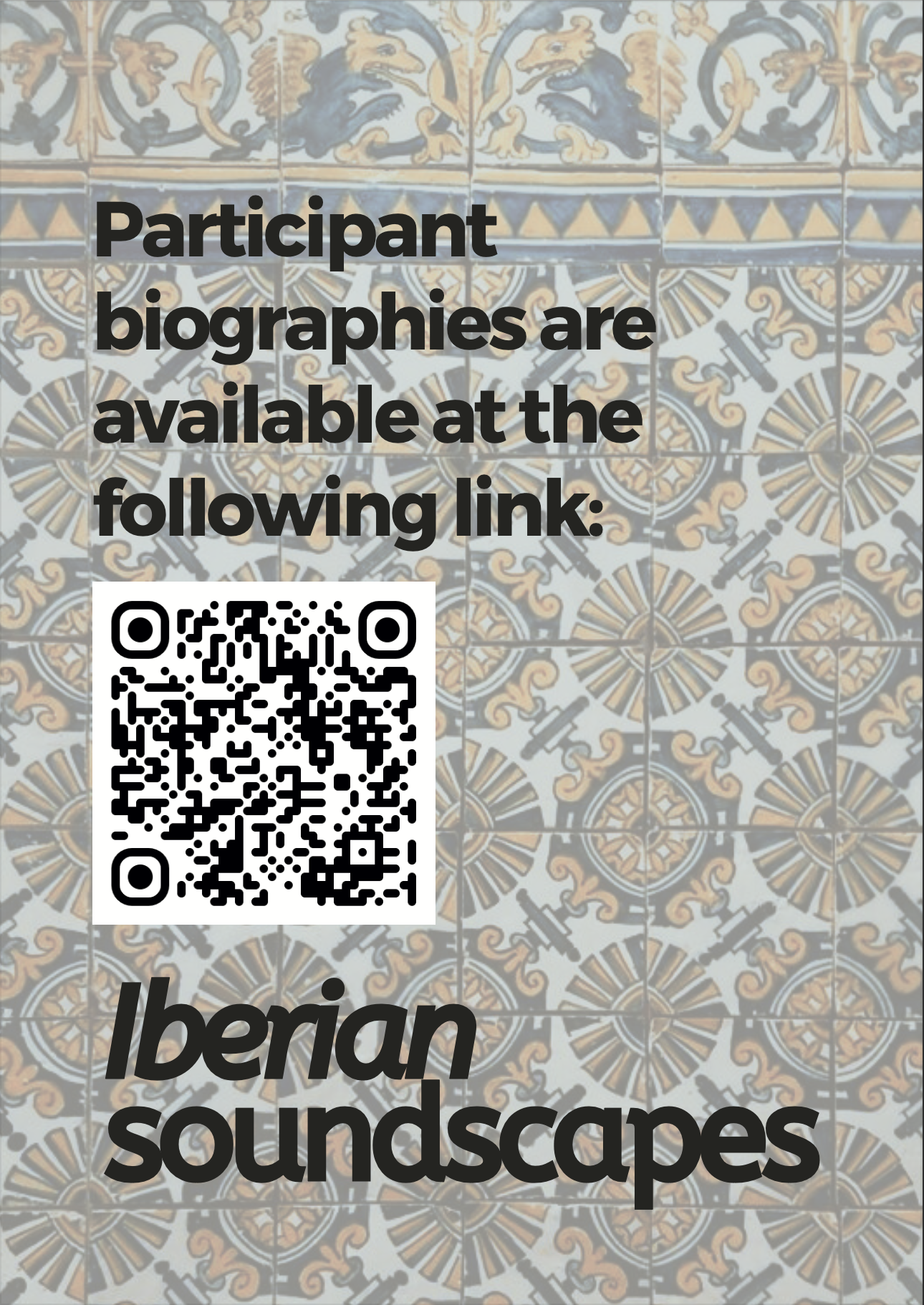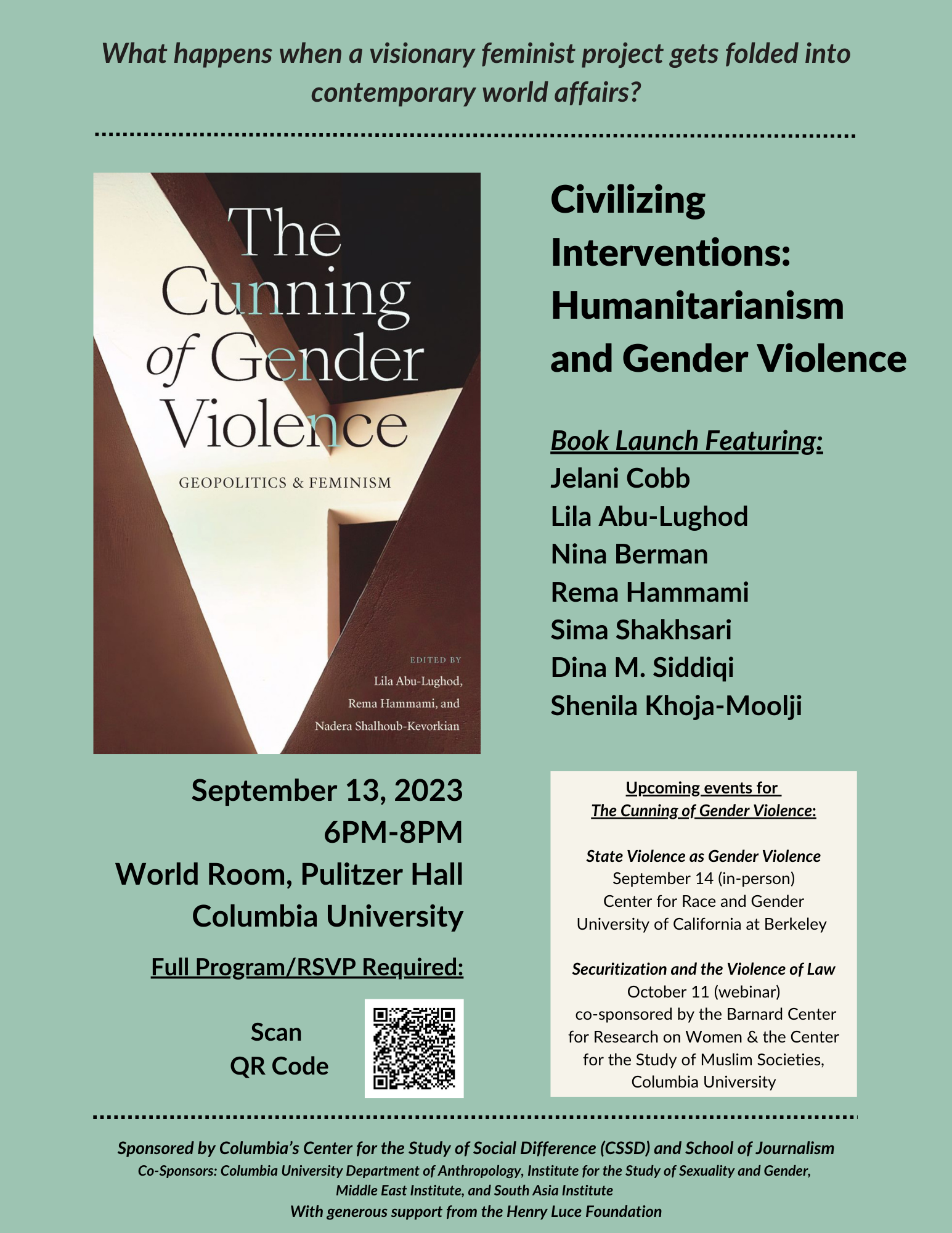This 2-day convening aims to explore the ongoing impact of Iberian histories in South Asia in shaping identities, social distinction, histories of merchant and commercial capitalism. We bring to the longue durée inquiry of Luso-Hispanic globality (15th century and beyond) a unique focus on histories of music and performance in South Asia and the Americas, particularly in Brazil. The conference brings together scholars, musicians, journalists, and other cultural producers to participate in a series of panel discussions and concerts at Yale University over two days.
Registration for the conference is available via Zoom: https://tinyurl.com/Iberian-soundscapes
Background:
Luso-Hispanic trade relations, settlements, and intimacies constituted a critical aspect of Spanish and Portuguese colonial expansion to the Americas, Asia, and Africa. We are especially keen to understand how Portuguese presence in South Asia markedly reshaped social and legal structures of caste, race, gender, and religion, even as they set the terms by which new mixed race communities would emerge in South Asia, or along coastal Africa, and Brazil, how these processes relate to the trade in human chattel, and new extractive economies--that assemblage which is today referred to by the term racial capitalism--but which demand broader rubrics to consider Portuguese mixed-racial categories that obscure race through assimilation, including in Portuguese-Indian formations of caste and other types of marginalization and difference that mark specific histories of labor, property, and merchant capitalism in the Pacific and Indian Oceans.
North American studies of race tend to focus on Atlantic histories of race-making and Protestant histories of liberal humanism. Portuguese and Spanish histories demand a different lens that accounts for the work of Catholicism and merchant capitalism that proliferated religious and racial categories as a means to regulate social mobility, land rights, and labor. Religious orders such as the Society of Jesus transformed Indigenous rituals of performance and music in efforts to Christianize local populations. The concept-metaphor of race in the Indian Ocean thus developed a distinct mode of discourse that begs how performance, music, and ritual formed part of histories of race and caste formation. This convening aims to bring together academics, journalists, and musicians to explore the role of race, caste, gender, music, and performance to consider the myriad ways that music, ritual, and performance have worked as forms of political affect in colonial and national projects, as well as in grassroots constitutionalism and political movements.
Program
Friday, October 7
1:00 p.m. – 2:00 p.m. WELCOME
K. David Jackson (Yale, Prof. of Luso-Brazilian Literatures and Cultures
Sunil Amrith (Yale, Prof. of History) Anupama Rao (Barnard, Prof. of Middle Eastern, South Asian, and African Studies)
KEYNOTE ADDRESS
Naresh Fernandes, “Sitar Goes Latin” (Editor, Scroll; author of Taj Mahal Foxtrot)
2:00 p.m. – 3:00 p.m. INTRODUCTION TO SOUNDSCAPES
Kevin A. Fellezs, “Learning to Listen with Empathy” (Columbia, Prof. African American Studies and Director of Center for Jazz Studies)
3:00 p.m. – 5:00 p.m. SOUNDSCAPES IN BRAZIL AND INDIA Susana Sardo, “Listening to the Post-Empire: Fado and Mando in Goa as Performative Devices for Cultural Sovereignty” (University of Aveiro, Assoc. Prof. of Ethnomusicology)
Micah Oelze, “Racial Counterpart, Colonial Rescoring: The Politics of Psychomusical Realism in Brazil’s Interwar Concert Scores” (Adelphi University, Assistant Prof. of Latin American History)
Gérald Estadieu, “Soundscape.AI – Sonic Perspectives on Macau” (Univ. of St. Joseph, Assistant Prof. in the Faculty of Arts and Sciences)
Pedro Aragão, “Connecting Sound Archives in Lusophone Countries: Challenges and Questions of the Libersound Project” (Univ. of Rio de Janiero, Assistant Prof. of Musicology
MODERATOR: K. David Jackson
5p.m. - 6:00 p.m. RECEPTION
Henry Luce Common Room
6:00 p.m. – 7:30 p.m. CONCERT
An Evening of Indian Ragas and Talas
8:00 p.m. DINNER FOR INVITEES Barcelona Wine Bar (155 Temple St.)
Saturday, October 7
9:00 a.m. – 9:30 a.m. BREAKFAST
9:30 a.m. – 11:00 a.m. THE SOCIAL SPACE OF MUSIC AND SOUNDS IN MUMBIA
Aneesh Pradhan (Online) “Patronage, Migration, and Performance: Goan Practitioners of Hindustani Music in Colonial Bombay” (Musician, Performer, Composer)
Rasika Ajotikar (Online) “Music and Anti-Caste Thought in Modern Western India” (Univ. of Hildesheim, Jr. Prof. of Ethnomusicology)
Urmila Bhirdikar (Online) “Riots and Ragas in Bhendi Bazaar: An Exploratory Report on a Place behind a Market in Colonial Bombay” (Shiv Nadar Institute of Eminence, DELHI-NCR, Assoc. Prof. of Sociology)
MODERATOR: Anupama Rao
11:00 a.m. - 1:00 p.m. ACCOUSTIC JUSTICE IN BRAZIL AND INDIA
Sérgio Infante, “Hearing Wrong? Hearing Right? Diplomacy, Development, and Brazil-India Relations” (Yale, Ph.D. Candidate in Global History)
Ana-Luiza de A. Claudio, “The Sounds and Echoes of the Alleys and Streets: A Perspective on the Oral Histories of the Rocinha Memory Project” (Columbia, Ph.D. Candidate in Latin American and Iberian Cultures)
Marcos Balter, “Camdomblé as a Point of Creative Departure” (Columbia, Prof. of Music)
MODERATOR: Ana Paulina Lee
1:00 p.m. – 2:00 p.m. LUNCH
2:00 p.m. – 4:30 p.m. SOUNDSCAPES IN CABO VERDE AND INDIA
Ângela Barreto Xavier, “The ‘New English America’ in a Brahmin Conspiracy against the Portuguese Imperial Domination” (Institute of Social Sciences at Univ. of Lisbon, Historian and Senior Researcher)
Ana Flávia Miguel, “An Irreplaceable Queen: Thoughts on Cape Verdean Music” (Univ. of Aveiro, Researcher of Ethnomusicology)
Felipa Vicente, “Words without Images (1860s - 1900s): Photography in Goa and by Goans, Before and Beyond Souza” (Institute of Social Sciences at Univ. of Lisbon, Historian and Researcher)
MODERATOR: Stuart Schwartz and Lisa Voigt
4:30 p.m. – 6:00 p.m. RECEPTION
Henry Luce Hall Auditorium
6:00 p.m. – 7:30 p.m. CONCERT
Brazilian Bandolim Virtuoso Tiago Souza Presents: Choro - Samba - Jazz
8:00 p.m. DINNER FOR INVITEES Atelier Florian (1166 Chapel St.)
Speakers
Marcos Balter (Columbia)
Fritz Reiner Professor of Musical Composition at Columbia University. He’s the recipient of the American Academy of Arts and Letters Music Award, John Simon Guggenheim Foundation Fellowship, Civitella Ranieri Foundation Fellowship, Tanglewood Music Center Leonard Bernstein Fellowship, and two Chamber Music America Awards. He has been commissioned by the New York Philharmonic, Los Angeles Philharmonic, Chicago Symphony, Orquestra do Estado de São Paulo, Geneva Camerata, Fromm Foundation, The MacArthur Foundation, and the Art Institute of Chicago, among others. His works are published by PSNY (Schott), and commercial recordings of his music are available through New Amsterdam Records, New Focus Recording, Parlour Tapes+, and Navona Records.
Naresh Fernandes is a journalist who lives in Bombay. He is the editor of Scroll.in, a digital daily, and a consulting editor at National Geographic Traveller India. Naresh was previously editor-in-chief of Time Out India, which has editions in Mumbai, Delhi and Bangalore. He has also worked at The Times of India and the Associated Press in Mumbai, and The Wall Street Journal in New York. He is the author of the widely acclaimed and prize-winning book, Taj Mahal Foxtrot: the definitive history of Bombay’s jazz age from the 1930s-1960s (Roli Books?, 2012); the product of many years of research, it was written up during his tenure as a Poeisis Fellow at the Institute of Public Knowledge at New York University. In his words, the book is about ‘listening to the city through the ears of its jazz fans and its jazz musicians.’ Naresh maintains an active blog on the archival material excavating through the work on Taj Mahal Foxtrot and has most recently authored a new book, City Adrift: A Short Biography of Bombay (Aleph books, 2013). His expertise on the transnational musical histories of the Goan and Anglo-Indian communities in India make him an invaluable addition to Modern Moves.
Ana Paulina Lee (Columbia) is Associate Professor and Director of Undergraduate Studies in the Department of Latin American and Iberian Cultures at Columbia University. She is the author of Mandarin Brazil: Race, Representation, and Memory (Stanford UP). Her research and teaching interests focus on formations of race, gender, nation, and citizenship; slavery and abolition, postcolonial studies; subaltern studies; literary theory; visual culture and performance, and cultural studies with a focus on 19th and 20th century Brazil and Luso-Hispanic Asia.
Anupama Rao (Columbia) is Professor of History and Director of the Institute for Comparative Literature and Society at Columbia University with research and teaching interests in gender and sexuality studies; caste and race; historical anthropology; social theory; comparative urbanism; and colonial genealogies of human rights and humanitarianism.


